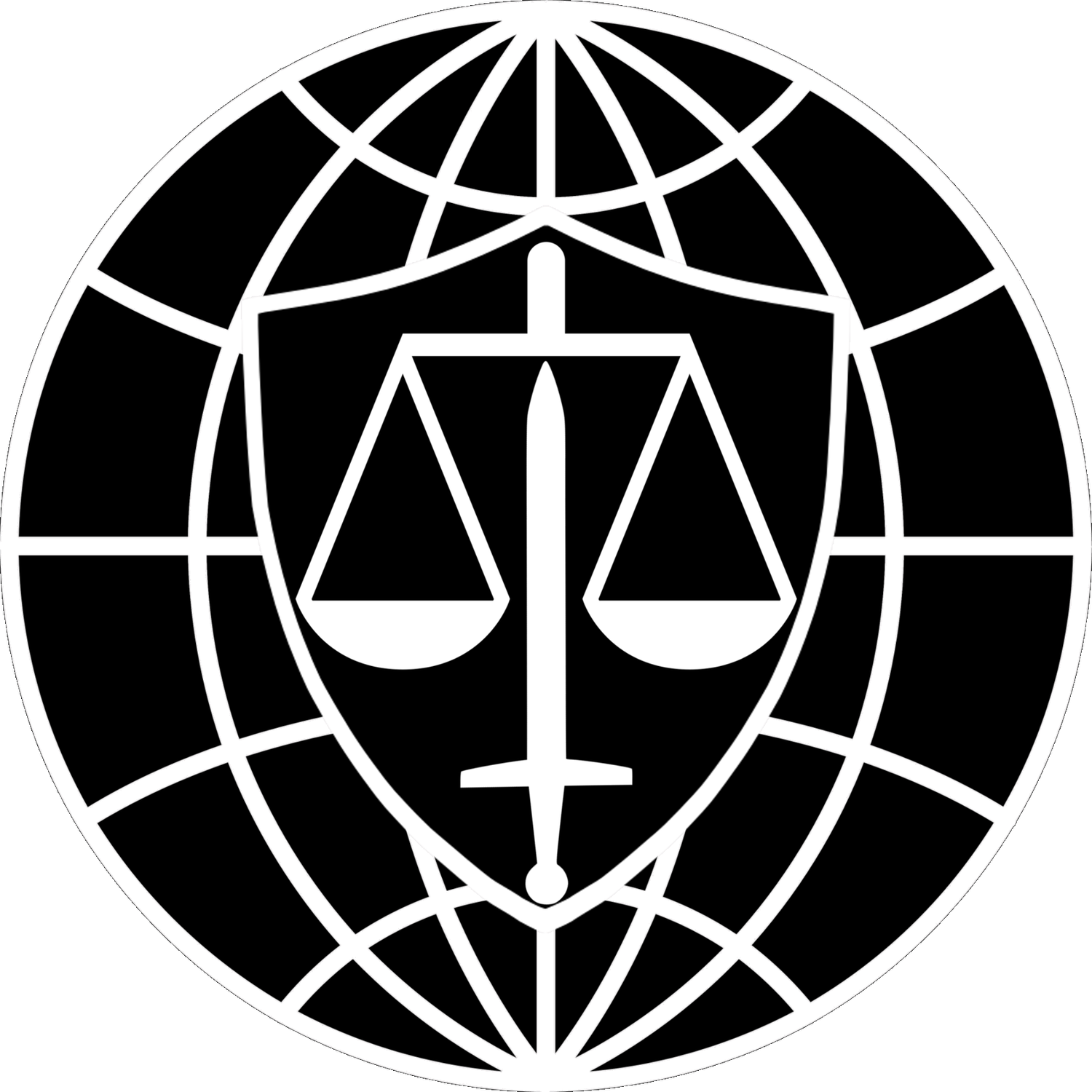Denationalization as a Form of Persecution in U.S. Asylum Law
Date of Information: 07/07/2025
Check back soon; we update these materials frequently

Introduction
The term denationalization has multiple meanings depending on context. In international criminal law, denationalization refers to efforts to eradicate the cultural or national identity of a group—such as banning a language, destroying institutions, or forcibly altering ethnic identity—often as a precursor to or component of genocide, war crimes, or crimes against humanity. Examples include the Nazi campaign to “Germanize” Poles and Jews, or South Africa's apartheid-era assignment of Black South Africans to fictitious “homelands.”
In contrast, this webpage focuses on denationalization as the involuntary revocation or stripping of citizenship, especially when done on the basis of ethnicity, race, political opinion, or national origin. When such revocation renders the individual stateless or is coupled with discrimination or exclusion from rights, it may rise to the level of persecution under U.S. asylum law. This form of denationalization can be similarly pernicious because it is, essentially, stripping a person's right to have rights under the laws of a particular nation-state.
Recent scholarship underscores the weaponization of citizenship by states around the globe, often under the guise of national security or counterterrorism. As noted in Denationalisation and Its Discontents by Christian Brown Prener, modern regimes increasingly use citizenship revocation as a tool to silence dissent and punish opposition figures—a practice especially visible in Myanmar and Nicaragua. These trends are not confined to authoritarian states; Western democracies have also expanded denationalization powers post-9/11, often circumventing traditional legal safeguards by shifting revocation authority from courts to executive agencies.
Legal Framework: Persecution and Protected Grounds
Under the Immigration and Nationality Act (INA), a person is eligible for asylum if they are a refugee: someone who is unable or unwilling to return to their country of nationality or habitual residence because of past persecution or a well-founded fear of future persecution on account of one or more of the five protected grounds:
Race,
Religion,
Nationality,
Political opinion, or
Membership in a particular social group.
(See 8 U.S.C. § 1101(a)(42)(A)).
Persecution need not involve physical harm. It includes severe restrictions on economic liberty, access to education, exclusion from civil life, or denial of fundamental human dignity, particularly where motivated by a protected ground.
For more information on the general legal standards for asylum in the United States, please see our research guide on that topic.
When Revocation of Citizenship Rises to Persecution
Not all revocations of citizenship constitute persecution. Courts and adjudicators consider several factors:
1. Was the denationalization based on a protected ground?
Ethnicity (e.g., Eritrean descent in Ethiopia)?
Political opinion (e.g., criticism of ruling regime)?
Religion or social group?
2. Was the denationalization punitive or discriminatory?
Was it part of a larger campaign targeting a specific group?
Was it accompanied by threats, detention, violence, or expulsion?
3. Did the denationalization result in statelessness or serious harm?
Loss of access to passports, education, work, or healthcare?
Inability to lawfully reside anywhere?
Social exclusion, harassment, or detention?
As Prener notes, denationalization today has shifted from a judicially reviewed process to an administrative measure, often executed in secret and without prior conviction or due process. Its disproportionate impact and often irreversible consequences highlight the need for strict scrutiny under asylum law and human rights norms.
Historical Example: Denationalization of Jews in Nazi Germany
One of the most notorious and systematic uses of denationalization as a tool of persecution occurred under Nazi Germany. The Nazi regime enacted a series of legislative and administrative measures designed to strip Jews—and other disfavored groups—of their German citizenship and the protections it afforded, thereby facilitating their exclusion, dispossession, and eventual annihilation.
The first major legislative act was the German Denaturalization and Expatriation Law of July 14, 1933, which authorized the revocation of German citizenship from individuals deemed politically or racially undesirable. Among the earliest targets were political dissidents, intellectuals, and Jewish refugees who had fled Germany, including figures such as Albert Einstein and Thomas Mann. These revocations were published in the Reichsanzeiger, Germany’s official register of expatriation, with no opportunity for judicial appeal.
This was followed by mass denaturalizations of persons naturalized during the Weimar Republic, particularly Eastern European Jews, whom the regime viewed as racially impure. These individuals were rendered stateless, and the loss of citizenship often entailed the confiscation of their property and exclusion from public life.
The systematization of this campaign intensified with the Reich Citizenship Law of 1935, one of the central Nuremberg Laws. This law established a two-tiered classification of citizenship: full Reich citizens were those of "German or kindred blood," while Jews and other minorities were demoted to the status of "state subjects"—effectively second-class residents without political rights or full legal protections. The First Decree to the Reich Citizenship Law, issued on November 14, 1935, further defined Jewish identity based on ancestry, codifying racialized citizenship.
The most expansive measure came with the Eleventh Decree to the Reich Citizenship Law, issued on November 25, 1941, which automatically revoked the citizenship of all Jews living abroad or deported from Germany. This decree formalized the statelessness of hundreds of thousands of Jews and facilitated the wholesale expropriation of their assets. Jews denaturalized under this law were barred from inheriting property or receiving pensions, and their status outside the protection of the law was made complete.
These measures treated Jews not merely as non-citizens, but as individuals devoid of rights entirely. There were no administrative or judicial remedies available—only total exclusion. This legal framework of denationalization thus functioned as a bureaucratic prelude to genocide, cloaked in the veneer of legality.
Following World War II, the Federal Constitutional Court of Germany held that the 1941 collective denaturalization orders were void ab initio. The court acknowledged that these laws were incompatible with fundamental principles of justice, underscoring the role that denationalization played in facilitating crimes against humanity.
Federal Case Law Recognizing Denationalization as Persecution
🟩 Haile v. Gonzales, 421 F.3d 493 (7th Cir. 2005)
“A program of denationalization and deportation is in fact a particularly acute form of persecution.”
— Id. at 496–497
🟩 Haile v. Holder, 591 F.3d 572 (7th Cir. 2010)
“[I]f to be made stateless is persecution, as we believe, then to be deported to the country that made you stateless… is to be subjected to persecution.”
— Id. at 574
🟩 Haile v. Holder, 384 F. App'x 501 (7th Cir. 2010)
“[T]he Board had ‘leapt to the conclusion’ that… such a loss of citizenship does not, without more, amount to persecution.”
— Id. at 503–504
🟩 Mengstu v. Holder, 560 F.3d 1055 (9th Cir. 2009)
“[T]he Ethiopian government solely targeted ‘Eritreans’ for deportation and denationalization.”
— Id. at 1058–1059
🟩 Gebkirstos v. Gonzales, 177 F. App'x 584 (9th Cir. 2006)
“Denial of relief without addressing those circumstances was arbitrary.”
— Id. at 586–587
🟩 Yohannes v. Holder, 437 F. App'x 608 (9th Cir. 2011)
“[T]he agency also erred by failing to consider Yohannes’ contention that there is a pattern and practice of persecution of Ethiopians of Eritrean descent in Ethiopia.”
— Id. at 609
🟩 Tesfamichael v. Gonzales, 469 F.3d 109 (5th Cir. 2006)
“[P]ersecution may encompass the deliberate imposition of severe economic disadvantage or the deprivation of liberty, food, housing, employment or other essentials of life.”
— Id. at 114–115
Distinguishing from Denationalization as a War Crime
Denationalization is also recognized as a potential war crime or crime against humanity when used to erase the national identity of a targeted group. As detailed in the Encyclopedia of Genocide and Crimes Against Humanity and affirmed by the Nuremberg Trials and Hague Conventions, such actions may amount to persecution or genocide.
As Prener explains, the post-9/11 trend in many Western democracies has been to lower safeguards and broaden the scope of denationalization—from criminal convictions to mere suspicion of disloyalty, and from court decisions to unilateral executive action. This convergence between counterterrorism and exclusionary nationalism reflects broader international concerns over the securitization of citizenship.
Need Help With an Asylum Claim Involving Denationalization?
If you or someone you know has been rendered stateless, stripped of citizenship, or targeted by a government through denationalization, you may have a strong case for asylum under U.S. law. These cases are legally and factually complex, but U.S. courts and immigration authorities have recognized that denationalization—especially when based on ethnicity, political opinion, or nationality—can amount to persecution.
We represent clients whose citizenship has been revoked or denied under repressive regimes, and we are experienced in building compelling asylum claims based on statelessness and related harms.
Contact Charles International Law to schedule a confidential consultation.
Conclusion
U.S. courts have consistently recognized that denationalization can constitute persecution when it occurs on the basis of a protected ground and has severe consequences such as statelessness, exclusion, or harm. This is particularly true when:
The revocation is motivated by race, ethnicity, or political opinion;
The individual is rendered stateless or deported;
The act is part of a systematic campaign of exclusion or marginalization.
Prener warns that the return of denationalization is not as alarming as the efforts to lower legal protections and redefine statelessness, which allow states to bypass prohibitions under international law. This includes treating people as "not stateless" if they are technically eligible for another nationality—even if that nationality is inaccessible in practice.
Applicants who can demonstrate that their loss of citizenship resulted in serious harm—whether in the form of forced expulsion, loss of legal identity, or inability to access basic rights—may be eligible for asylum in the United States. Denationalization, when used as a tool to punish political dissent, enforce ethnic homogeneity, or criminalize opposition, is not merely unjust—it is persecution.
Frequently Asked Questions About Denationalization and Asylum
What is denationalization?
Denationalization is the forced loss or revocation of a person’s citizenship by their home country, often through discriminatory laws or targeted government action. Unlike voluntary renunciation, denationalization is involuntary and leaves individuals without the protection of a state.Can denationalization qualify as persecution for asylum purposes?
Yes. U.S. asylum law recognizes denationalization as a severe form of persecution when it is used to target individuals or groups for political, ethnic, religious, or other protected reasons. The Supreme Court has described loss of nationality as a punishment “more primitive than torture,” highlighting its seriousness.How is denationalization different from statelessness?
Denationalization is the act of stripping a person of their nationality. Statelessness is the result—when a person is left without citizenship in any country. While not all stateless people are persecuted, denationalization often creates the conditions for persecution.Do I need to prove why I was denationalized to qualify for asylum?
Yes. To win asylum, you must show that your denationalization was linked to one of the protected grounds under U.S. law—race, religion, nationality, political opinion, or membership in a particular social group. Evidence such as government documents, court records, or country condition reports can support your claim.Does denationalization always lead to asylum approval in the U.S.?
Not automatically. While denationalization can be strong evidence of persecution, the government will still evaluate your case based on credibility, supporting documentation, and whether other bars to asylum apply. Legal representation can make a significant difference.What should I do if I was stripped of my nationality and fear returning home?
You should consult with an experienced asylum attorney as soon as possible. An attorney can help you file a timely asylum application, gather supporting evidence, and explain how U.S. law protects individuals who have been denationalized.
Other Helpful Resources:
See Also:
CIL Guide to the Circumvention of Lawful Pathways Rule

